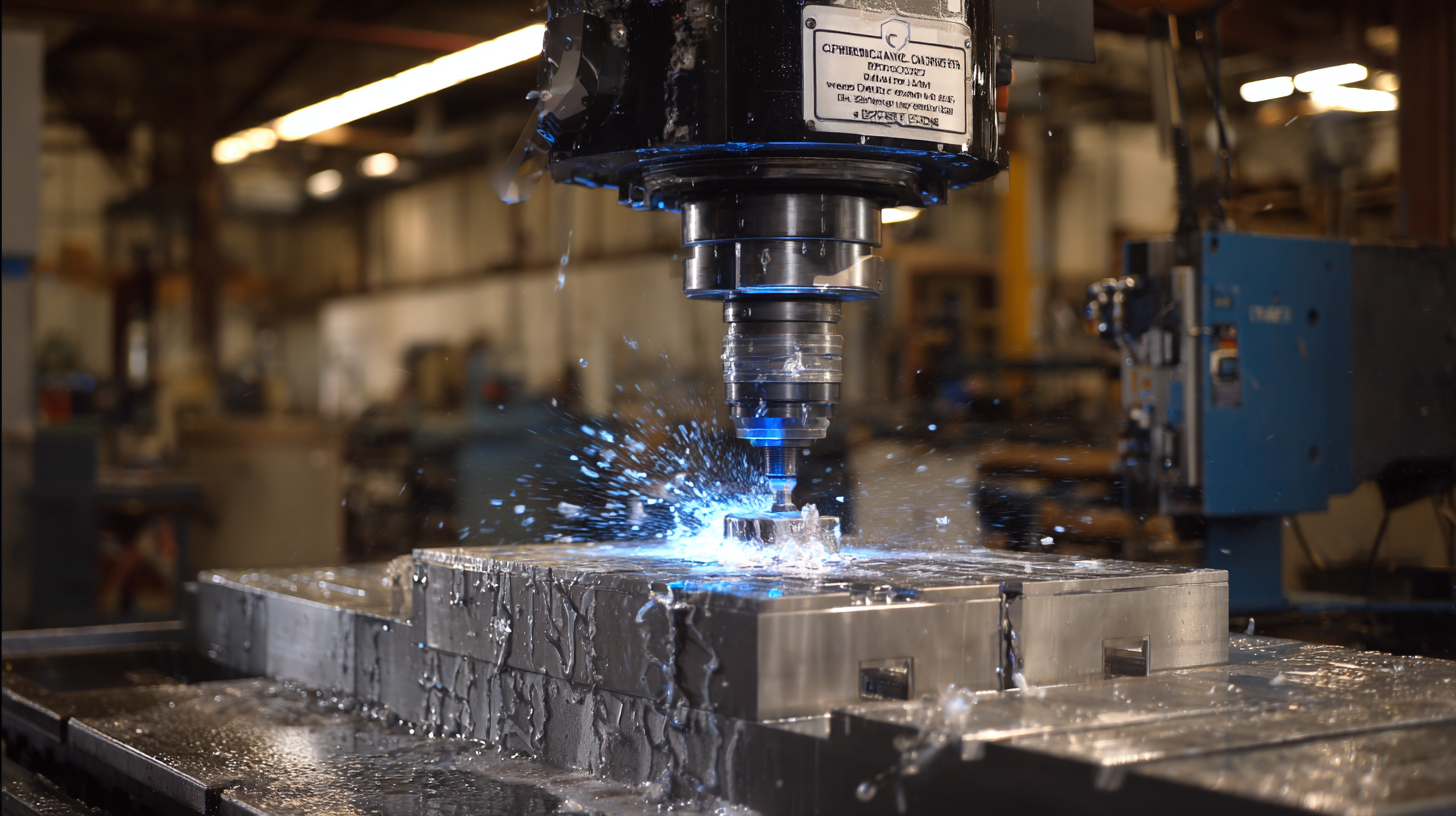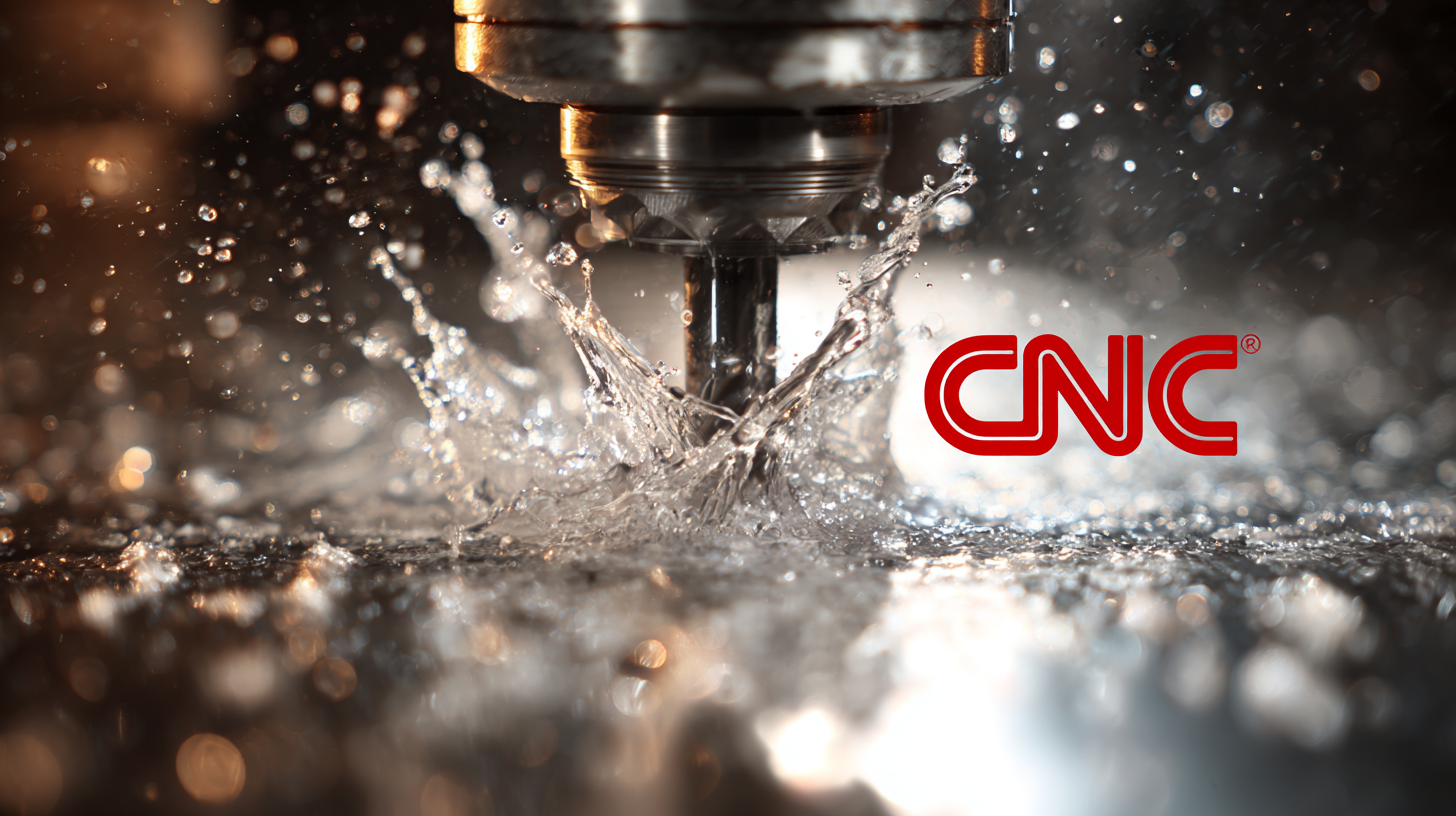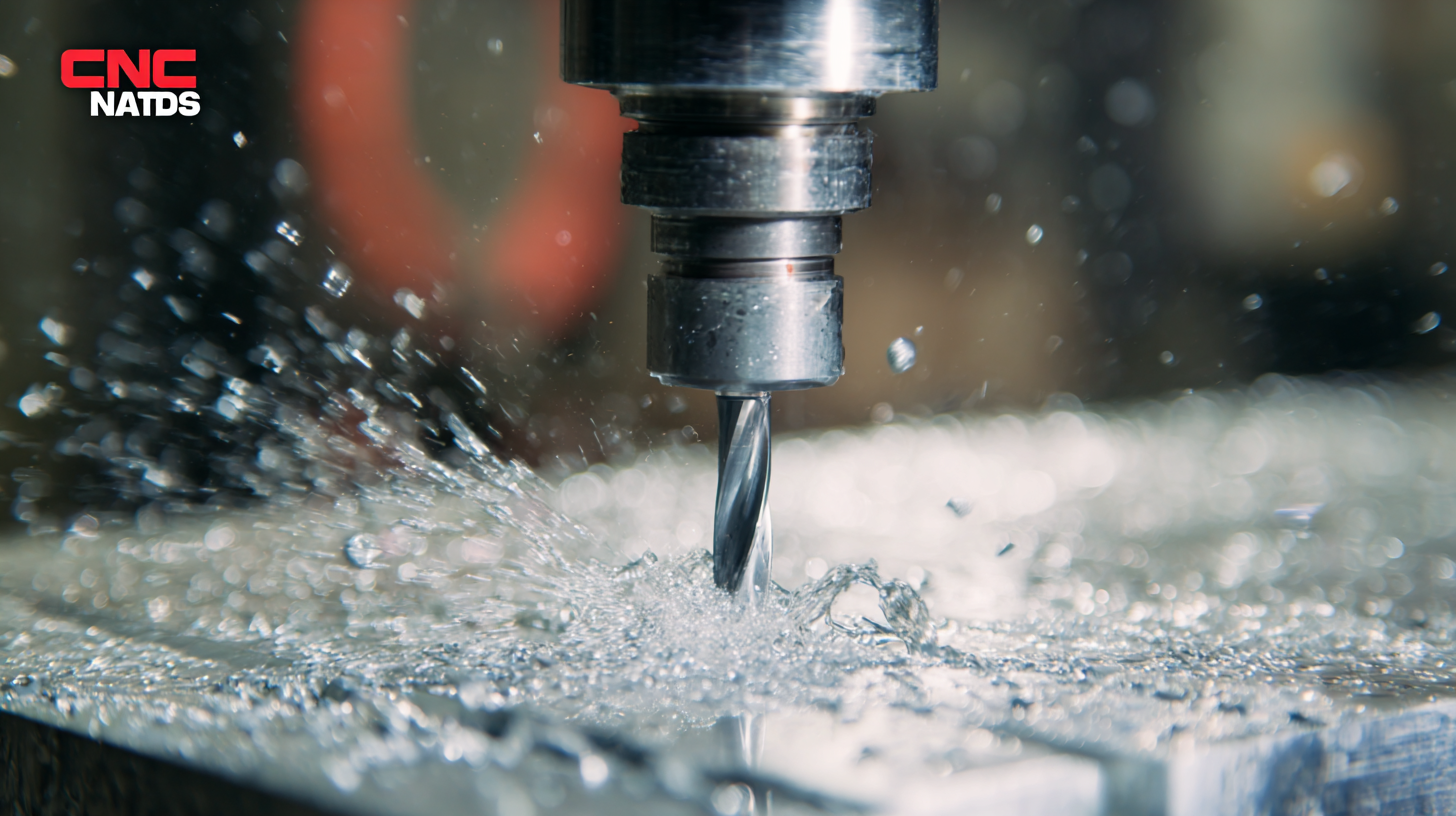
- sales@bjbod.com
- Mon - Sat at 7:00AM to 9:00PM

The aluminum fabrication industry is undergoing a significant transformation driven by technological advancements, with CNC (Computer Numerical Control) machining leading the charge. According to recent reports from the International Aluminum Institute, the global demand for aluminum products is projected to exceed 100 million metric tons by 2025, partly due to the rising utilization of lightweight materials in various sectors, including automotive and aerospace. In this context, the choice of tools, particularly CNC bits for aluminum, plays a crucial role in achieving precision and efficiency. As manufacturers seek to enhance their production capabilities, real-world success stories demonstrate how investing in the best CNC bits for aluminum not only improves surface finish and dimensional accuracy but also reduces production time and waste, paving the way for sustainable practices in an increasingly competitive market. This blog explores these success stories and highlights the industry's technological trends as we approach 2025.

The aluminum fabrication industry is experiencing a significant transformation, driven by key innovations in CNC technology. As highlighted at major events like the China International Aluminum Industry Exhibition, which showcases the latest materials and advancements, the role of CNC machinery is pivotal. CNC technology enhances precision and efficiency, allowing fabricators to produce intricate designs with minimal waste and maximum accuracy.
Innovations in CNC bits have further revolutionized the manufacturing process. These specialized tools are designed to optimize the cutting of aluminum, providing smoother finishes and reducing production time. Companies that have embraced these advancements report increased productivity and improved product quality. As the demand for lightweight and durable aluminum components rises across various sectors, the integration of advanced CNC technology will continue to propel the industry forward, reshaping the landscape of aluminum fabrication for years to come.
 Precision CNC bits play a pivotal role in enhancing the efficiency of aluminum manufacturing processes. By employing high-quality CNC bits designed specifically for aluminum, manufacturers can achieve remarkable improvements in accuracy and speed. For instance, utilizing bits with advanced coatings can minimize friction, leading to cleaner cuts and reduced tool wear. This not only boosts productivity but also elevates the overall quality of the finished products.
Precision CNC bits play a pivotal role in enhancing the efficiency of aluminum manufacturing processes. By employing high-quality CNC bits designed specifically for aluminum, manufacturers can achieve remarkable improvements in accuracy and speed. For instance, utilizing bits with advanced coatings can minimize friction, leading to cleaner cuts and reduced tool wear. This not only boosts productivity but also elevates the overall quality of the finished products.
Tips for selecting the right CNC bits include considering the material type and thickness of the aluminum you’re working with. Opt for bits with a high helix angle for a better chip removal rate, which is essential for maintaining cutting efficiency. Additionally, always ensure that your CNC machine is calibrated correctly to avoid excessive vibration, which can deteriorate the cutting edges of the bits and compromise accuracy.
Moreover, regularly maintaining your CNC bits is crucial for sustaining their performance. Regular cleaning helps remove aluminum shavings that can dull the edges, while timely replacements prevent potential breakdowns during critical production phases. By investing in the right tools and adhering to proper maintenance routines, manufacturers can significantly enhance their aluminum fabrication processes.
In the competitive landscape of aluminum fabrication, top companies are leveraging advanced CNC technologies to enhance their production metrics significantly. According to a report by IBISWorld, the aluminum manufacturing industry in the U.S. is projected to grow at an annual rate of 2.8% over the next five years, primarily driven by automation and improved machining techniques. Companies implementing high-quality CNC bits are reporting productivity increases of up to 30%, which is a game-changer in meeting rising demands while maintaining efficiency.
One of the most effective strategies employed by industry leaders is focusing on the selection of appropriate CNC bits. For instance, businesses utilizing titanium-coated bits see a reduction in tool wear and an increase in precision during machining. A survey from the Manufacturing Institute indicates that 60% of manufacturers who invest in high-quality tooling experience a direct increase in their overall production quality.
Tip: Regular maintenance of CNC machinery and proper bit selection based on material type can extend tool life and enhance output quality. Additionally, integrating data analytics to monitor production processes can lead to optimized workflows, thus driving efficiency and profitability. By focusing on these areas, companies can unlock new levels of success in aluminum fabrication.
The demand for advanced CNC solutions in China is on the rise, aligning with global trends in the metal fabrication sector. The market for CNC machining centers is expected to grow significantly, with a projected value of $40.82 billion by 2025, continuing to expand to over $45.01 billion by 2033, reflecting a compound annual growth rate (CAGR) of 1.23%. This trend showcases the increasing reliance on precision engineering, particularly in the aluminum fabrication industry, where efficiency and accuracy are paramount.
The bending machine market also demonstrates notable growth, anticipated to exceed $9.5 billion by 2024, with a robust CAGR of 5.9% from 2025 to 2034. This growth can be attributed to the escalating demand for high-speed automation solutions within manufacturing processes. As Chinese manufacturers seek to optimize production, investing in advanced CNC technologies becomes essential.
Tips: To stay ahead in the competitive aluminum fabrication sector, consider integrating advanced CNC solutions into your operations. Regularly update your machinery to meet evolving market demands, and invest in training your workforce to utilize new technologies effectively. Embrace automation to enhance precision and reduce lead times, positioning your business for sustained growth in this dynamic market.
China has emerged as a powerhouse in the aluminum fabrication industry, leveraging advanced technology and innovative practices to dominate global markets. The nation's heavy investment in research and development has resulted in cutting-edge CNC (Computer Numerical Control) technologies, allowing manufacturers to produce high-quality aluminum components with unmatched precision. These advancements not only enhance productivity but also reduce waste, making Chinese products more competitive on the international stage.
Moreover, China's strategic partnerships and extensive supply chain networks contribute to its leading position in aluminum fabrication innovations. By collaborating with global players and integrating best practices from around the world, Chinese firms are able to push the boundaries of what's possible in aluminum processing. The use of specialized CNC bits further optimizes machining processes, ensuring that even the most complex designs can be fabricated efficiently and effectively. As the world increasingly turns to sustainable materials and processes, China's leadership in aluminum fabrication signifies a pivotal shift towards more innovative and environmentally friendly manufacturing solutions.
